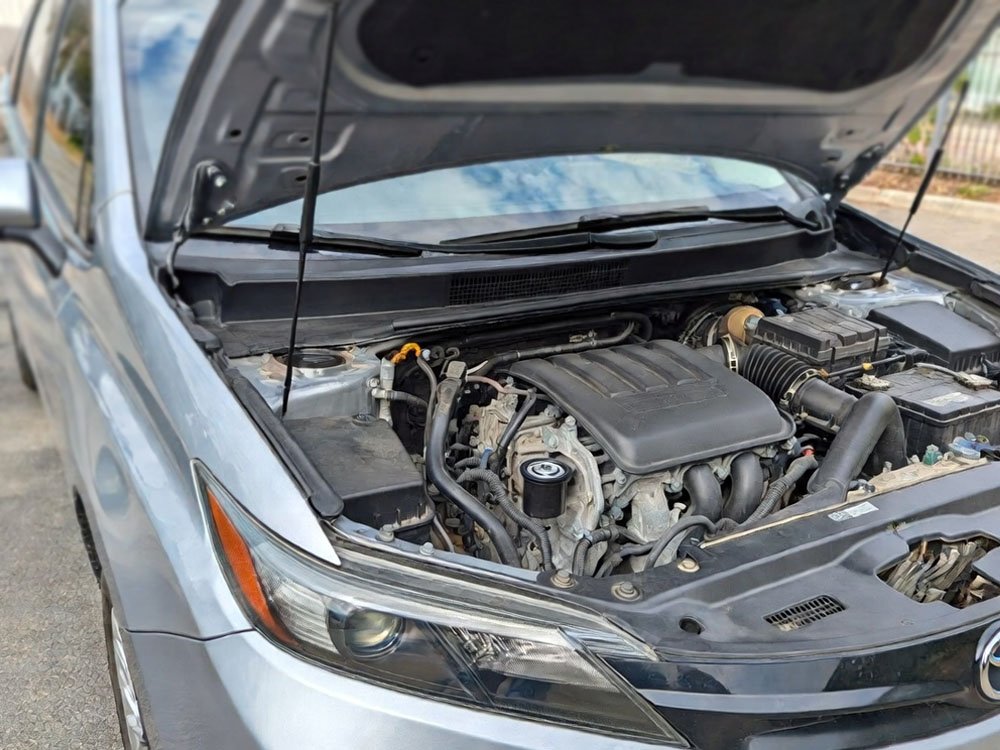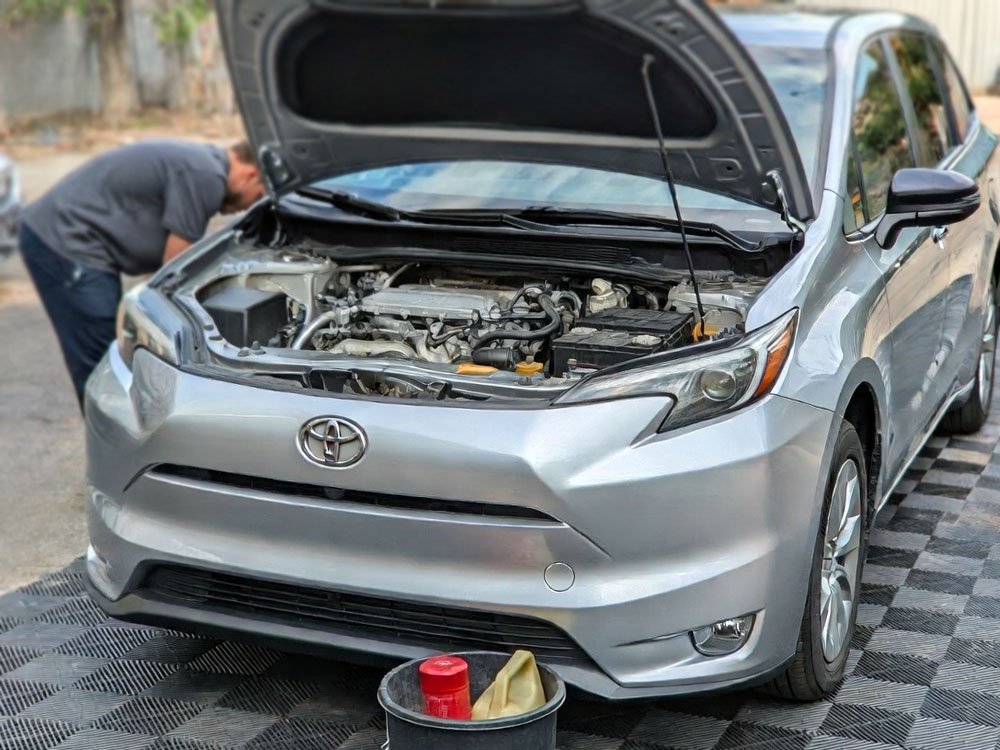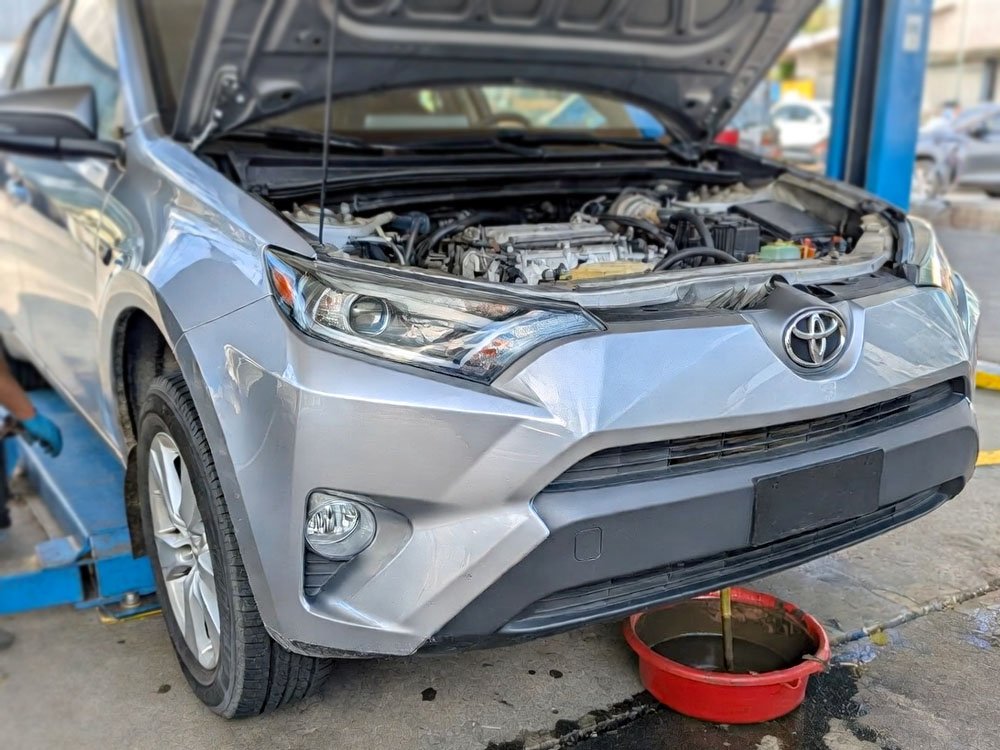As an Amazon Associate, I earn from qualifying purchases at no extra cost to you.
How To Transfer Car Title In Nj
To transfer a car title in NJ, both the buyer and seller must go to the DMV and complete the necessary paperwork together. The buyer needs to bring proof of insurance and payment for the fees.
The process to transfer a car title in NJ involves specific steps to ensure the legal transfer of ownership. Understanding these steps and following them correctly is crucial to avoid any issues in the future. This guide will provide you with a clear overview of how to transfer a car title in NJ, outlining the requirements and procedures involved.
By following these steps, you can complete the title transfer smoothly and efficiently, ensuring that the new owner is officially recognized by the state as the legal owner of the vehicle.
Requirements For Transferring Car Title In Nj
When transferring a car title in New Jersey, there are specific requirements that need to be met. Ensuring you have the necessary documentation and information beforehand can streamline the process and prevent any delays. Here are the main requirements for transferring a car title in NJ:
Proof Of Ownership
To transfer a car title in New Jersey, you will need to provide proof of ownership of the vehicle. This can typically be done by presenting the current title or a Manufacturer’s Certificate of Origin (MCO) if the vehicle is new. If the vehicle was previously owned and the title is not available, you may need to provide a bill of sale or an affidavit of ownership.
Proof Of Identification
Additionally, proof of identification is required when transferring a car title. This can be established through a valid driver’s license, passport, or any other government-issued photo identification. Both the seller and the buyer may need to provide identification to complete the transfer process.
Proof Of Residency
It is essential to provide proof of residency when transferring a car title in NJ. This can be demonstrated through documents such as a utility bill, lease agreement, or any official mail that shows your current address. The proof of residency is necessary to verify that the new owner is a resident of New Jersey.
Gathering The Necessary Documents
When transferring a car title in NJ, collecting the essential documents is vital to ensure a smooth process.
Car Title
In NJ, the car title is a crucial document needed for the transfer process.
Vehicle History Report
Obtaining a vehicle history report helps verify the car’s background and ownership details.
Insurance Information
Having your insurance information ready is necessary for the car title transfer in NJ.
Valid Identification
Bringing valid identification, such as a driver’s license or passport, is mandatory.
Proof Of Residency
Showcasing proof of residency, like a utility bill or lease agreement, establishes your address.
Proof Of Social Security Number
Provide proof of your social security number to complete the car title transfer process.
Previous Owner’s Information
Gather the previous owner’s details to validate the ownership transfer accurately.
Also Read: Why Is My Car Revving In Park
Completing The Application
Completing the Application is a crucial step when transferring a car title in New Jersey. Follow these simple steps to ensure a smooth process:
Visit The Nj Mvc Office
Before starting the title transfer process, you must visit the New Jersey Motor Vehicle Commission (MVC) office in person. Find a convenient location and allow ample time for this visit.
Fill Out The Application Form
Once at the MVC office, you will be provided with the necessary application form. Make sure to complete all sections accurately and provide the required information, including details about the current owner and the new owner.
Pay The Required Fees
After completing the application form, you will need to pay the relevant fees for the title transfer. Ensure you have the necessary payment method available to cover these costs to expedite the process.
See Also: How Cold Should Ac Blow In Car
Notifying Insurance Company And Financier
When transferring a car title in New Jersey, it’s crucial to promptly notify your insurance company and the financier involved. Failing to do so can lead to complications that could affect your coverage and financial obligations. Here’s a guide on how to inform these important parties about the title transfer.
Contact Your Insurance Company
Contact your insurance company as soon as the title transfer process begins. This notification is essential to ensure that the proper coverage is in place for the vehicle under the new ownership. Provide them with the necessary information, including the new owner’s details and the effective date of the transfer. Failure to update this information can lead to potential issues with claims or coverage under the new owner’s policy.
Inform Your Financier
When a vehicle is financed, it’s critical to inform your financier about the title transfer. This ensures that the lienholder’s details are updated to reflect the new owner. Notify the financing institution promptly to avoid any discrepancies in ownership records, which can lead to complications in the event of a loss or damage to the vehicle. Provide the necessary documentation to the financier to facilitate a smooth transition of ownership.
Transferring The Car Title
Transferring the car title in New Jersey is a necessary step when buying or selling a vehicle. It ensures that the new owner is legally recognized by the Motor Vehicle Commission (MVC) as the rightful owner of the car. To successfully transfer the car title, there are specific steps you need to follow, starting with providing the necessary documents to the MVC.
Provide Necessary Documents To The Mvc
Before you can transfer the car title, you must gather the required documents to present to the MVC. These documents will verify your identity and ownership of the vehicle. Here are the essential documents you need:
- Proof of identity: Ensure you have a valid New Jersey driver’s license or identification card. This document serves as proof of your identity.
- Original car title: The current owner of the vehicle must provide the original car title. If there is an existing lien on the vehicle, a lien release must also be obtained.
- Bill of sale: If you are purchasing a vehicle, a bill of sale from the seller is required. This document verifies the transaction and transfer of ownership.
- Proof of insurance: You must provide proof of insurance for the vehicle you intend to transfer the title for. This can be in the form of an insurance card or a policy declaration page.
- Payment: There are fees associated with transferring the car title. Ensure you have the required payment in the form of cash, check, or money order.
Receive The New Car Title
Once you have gathered all the necessary documents and submitted them to the MVC, the next step is to wait for the new car title to be issued. The timeframe for receiving the new car title may vary, but it is typically mailed directly to the new owner’s address.
It is essential to verify that all the provided information is accurate and up-to-date on the new car title. This includes your name, address, and vehicle details. If any errors are found, contact the MVC immediately to have them corrected.
Once you have received the new car title, sign it and keep it in a safe place. The car title serves as proof of ownership, and you may need it in the future for various purposes, such as selling the vehicle or registering it in another state.

Credit: www.webuyallcarsinnj.com
Registering The Vehicle
The process of registering the vehicle is an important step after transferring the car title in NJ. It involves obtaining the new registration document and getting new license plates. Understanding the process and requirements can help ensure a smooth transition of ownership.
Obtain The New Registration Document
Once you have successfully transferred the car title in NJ, you will need to obtain the new registration document. This document serves as proof of ownership and allows you to legally operate the vehicle on the roads of New Jersey.
Here are the steps you can follow to obtain the new registration document:
- Visit the nearest New Jersey Motor Vehicle Commission (MVC) office.
- Bring the necessary documents with you, including the completed Application for Certificate of Ownership (Title) and Application for Registration.
- Provide proof of identification, such as a valid driver’s license or non-driver identification card.
- Submit any additional documents required, such as a bill of sale, proof of insurance, and the previous vehicle title.
- Pay the applicable fees for the registration, which will vary depending on the type of vehicle and its weight.
- Once all the requirements are fulfilled, you will be issued the new registration document.
Get New License Plates
Getting new license plates is an essential part of the vehicle registration process. These plates serve as identification and must be displayed on the front and rear of the vehicle as required by law.
To get new license plates, follow these simple steps:
- Visit the MVC office or complete the process online, if available.
- Provide the necessary information, including your personal details and vehicle information.
- Pay the required fee for the license plates.
- Once the transaction is complete, you will receive your new license plates.
Remember to remove the old license plates from the vehicle and dispose of them properly to avoid any confusion or misuse.
By following these steps to obtain the new registration document and get new license plates, you can ensure a smooth and legal transfer of ownership for your vehicle. It is crucial to complete this process promptly to avoid any penalties or legal issues in the future.
Completing The Transfer
To successfully transfer a car title in NJ, you must ensure the process is completed correctly. Here’s a step-by-step guide on how to complete the transfer smoothly.
Notify The Previous Owner
It’s crucial to inform the previous owner that you are completing the title transfer. This will ensure transparency and avoid any misunderstandings during the process.
Update Your Insurance Policy
Before completing the transfer, make sure to update your insurance policy with the new vehicle details. This step is essential to comply with NJ state laws.
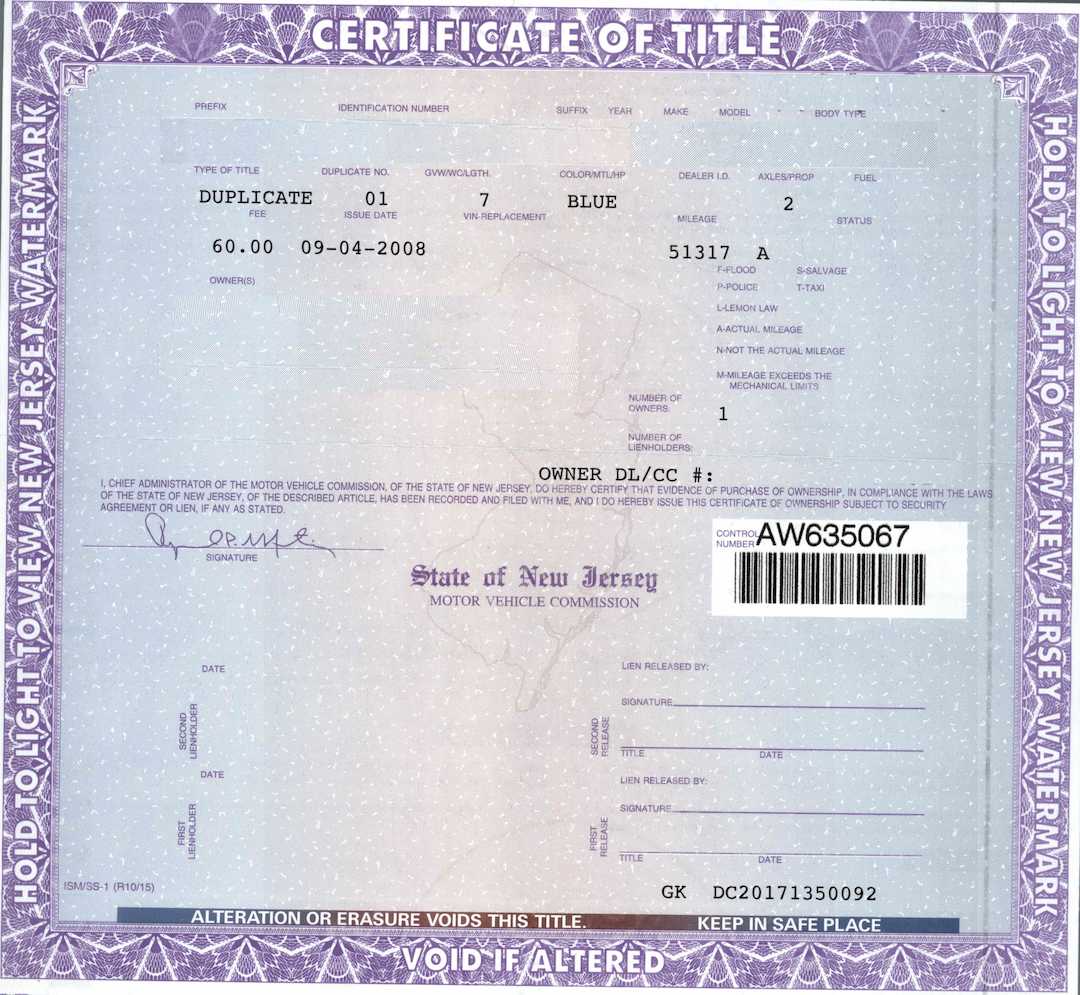
Credit: www.cardonationwizard.com
Additional Considerations
When transferring a car title in New Jersey, there are some additional considerations to keep in mind. Whether you are dealing with inherited or gifted vehicles, leased vehicles, or out-of-state vehicles, navigating the title transfer process can be quite complex. Understanding the specific requirements for these unique scenarios is crucial to ensure a smooth and successful transfer.
Title Transfer For Inherited Or Gifted Vehicles
Transferring a car title for an inherited or gifted vehicle in New Jersey involves some additional steps compared to a standard title transfer. Generally, you will need to provide documentation such as a will, executor’s papers, or a gift affidavit to validate the transfer. It's important to ensure that all necessary paperwork is in order to avoid delays in the process.
Title Transfer For Leased Vehicles
When transferring the title for a leased vehicle in New Jersey, the process can be slightly different. Most lease agreements require the lessor’s permission to transfer the title. Additionally, you may need to provide documentation from the leasing company to complete the transfer, making it essential to communicate effectively with all involved parties.
Title Transfer For Out-of-state Vehicles
Transferring the title for an out-of-state vehicle in New Jersey involves specific requirements that differ from transferring titles for in-state vehicles. You will typically need to provide additional documentation, such as a vehicle identification number (VIN) verification and an out-of-state title, to complete the transfer process. Ensuring that all required documents are gathered prior to initiating the transfer is crucial for a seamless experience.
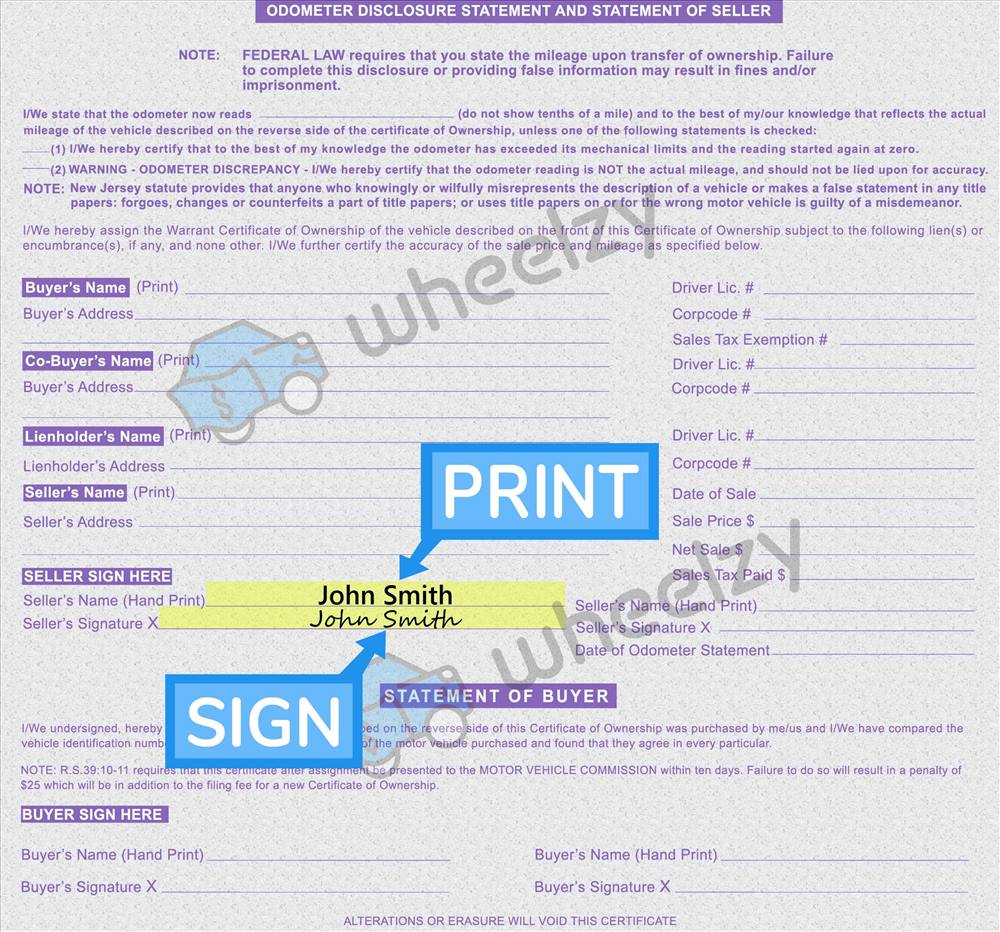
Credit: wheelzy.com
Conclusion
Transferring a car title in NJ is a crucial process. With the right knowledge and preparation, you can navigate this procedure smoothly. Remember to gather all necessary documents and follow the outlined steps to ensure a successful transfer. From understanding the requirements to visiting the MVC office, staying informed and organized is key.



